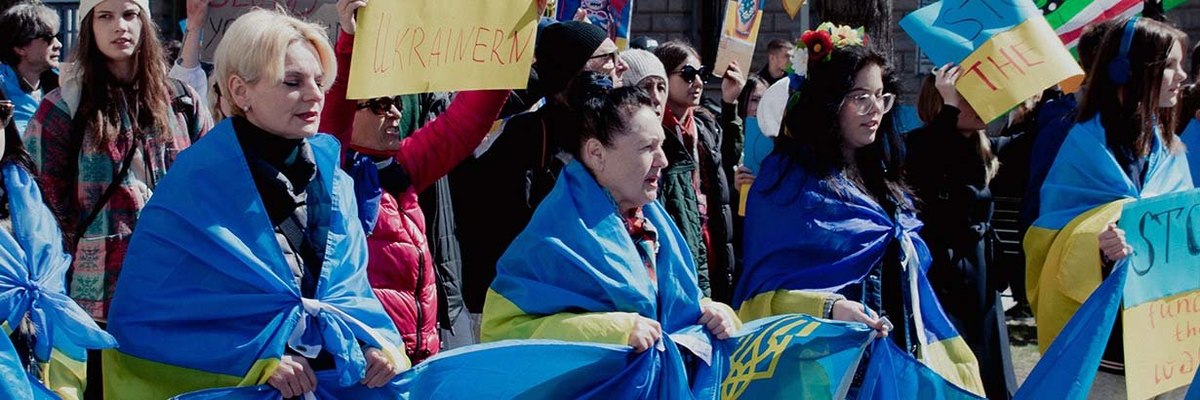Written by Dietlind Stolle, James McGill Professor in Political Science at McGill University and former Director of the Inter-University Centre for the Study of Democratic Citizenship.
In a recent YouGov poll conducted with the European University Institute for the 2022 State of the Union conference in Florence, our research found that an overwhelming majority of the citizens of EU countries attribute responsibility for the situation in Ukraine to Russia.
The study draws on representative samples in 16 countries of the European Union plus the UK, with fieldwork conducted between 1-25 April.
In Scandinavia, the UK, Poland and the Netherlands more than 70% of people make Russia primarily responsible. However, in Bulgaria and Greece a majority believe that either NATO is responsible or both NATO and Russia equally. The majority of people in Slovakia and Hungary also do not agree that the war is mostly Russia’s responsibility.
A similar picture emerges when people are asked directly about the European Union’s relationship with Russia. While a majority of people suggest that European countries should invest in defense and security rather than trade and diplomacy with Russia – a view that has increased heavily over the last months – more people in Bulgaria, Greece, Slovakia and Hungary take the opposite view. There people prefer diplomacy and trade with Russia over investing in defense.
These findings indicate that the European publics are more divided than current discourse about unified European responses towards the war in Ukraine would lead one to believe.
Our survey also asked to what extent and how Europeans in the countries surveyed support or oppose a number of initiatives geared to address the Russian invasion of Ukraine. Overwhelming support was noted for sending humanitarian aid to Ukraine (84%), allowing refugees from Ukraine to enter European countries (80%), and their labour markets (71%).
It seems most difficult for Europeans to envision sending troops to join the war alongside Ukraine in a NATO operation (on average only 31% support this). Similarly, only a minority of Europeans are ready to accept higher energy costs due to the sanctions imposed on Russia (though still 42% support it).
Fast-tracking Ukraine’s EU membership receives net support (by 49% to 30%), while a majority also back sending weapons and military equipment to Ukraine (58%), but the diversity of reactions is particularly high on this latter measure. Here again, we see that people in Bulgaria, Greece, Hungary and Slovakia are mostly very skeptical about sending weapons or military equipment and also strongly oppose sending any troops to Ukraine, although political leadership there has in part sent weapons along.
What sets these countries apart from other European ones included in this study? Some of these countries are known for strong historical relationships with Russia in part because of religious ties, in part because of affinities between their Left or Communist parties and Russia.
There is also skepticism towards the West and NATO, if not outright anti-Americanism. Moreover, Hungary’s Prime Minister Orbán has usually supported Russia, and so far Hungary has not agreed to any oil or gas sanctions against Russia. Still, publics in these countries continue to protest the war and demand more action from their governments, which means that the war emerges as a polarizing issue in some European societies.
Photo by Maria-Theodora Andrikopoulou from Pexels







